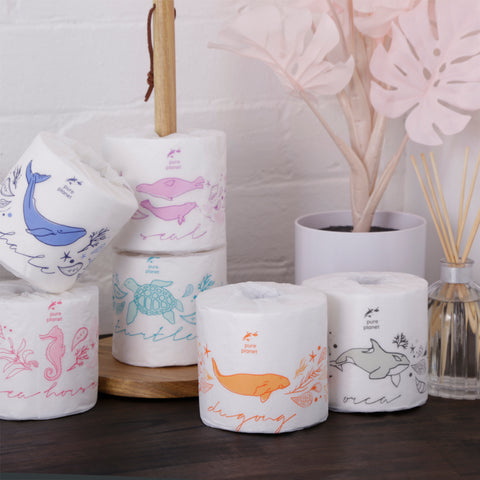Use natural light as much as possible when you’re at home, and keep curtains and blinds wide open to make use of sunlight during the day. Always switch off lights whenever you leave a room and change your light bulbs to energy-efficient ones, like LED lights.

2 - Add more recycle bins around the house
Most of us have one main recycling bin – usually in the kitchen – so rubbish in bedrooms and the bathroom tends to get collected in one receptacle. Adding even one extra recycling bin in your home will encourage you to recycle your rubbish more efficiently.
House plants can improve air quality and humidity levels, reduce stress and even improve your mood. Plants can remove common indoor pollutants like formaldehyde, benzene, and ammonia, making the air cleaner and healthier to breathe. Swap cuttings with friends or propagate existing plants for a cost-free way to add more plants without spending lots of money.
4 - Limit food waste
Even though we are experiencing a cost of living crisis and food prices are on the rise, a staggering $3000 worth of food is being thrown away by the average household every year. Use up leftovers, make soup once a week from those sad veggies lurking at the end of the crisper, and add odds and ends from the fruit basket to smoothies, muffins or cakes. For more ideas on slashing food waste read our blog here.
5 - Compost food scraps
Put all your leftover food scraps, coffee grounds and egg shells into a compost bin, whether it’s in your garden, in the communal area of your apartment block or even a small benchtop compost bin. When you’re at work or just out and about, save your food scraps in takeaway containers or coffee cups and bring them home rather than chucking them in the bin.
Unplug chargers and devices when they're not in use, as they can draw power even when not actively charging.

7 - Preserve your food seasonally
Make the most of food that’s cheap and in season, and preserve vegetables in oils, marinades, chutneys or vinegars. Make jam from in-season berries and preserve stone fruits and pears to eat with cream or ice-cream off-season.
The average person uses about 100 rolls of toilet paper every year, which equals around 17 trees if you’re using conventional toilet paper. Switching to bamboo or recycled toilet paper is a super simple step towards preserving trees.

9 - Conserve water
Turn off the tap when brushing your teeth, collect water in the shower to reuse on your plants or lawn, and rinse plates in a sink filled with water rather than a running tap.
The start of a new season is a great time to declutter and donate items you no longer need. Give your home a deep clean using eco-friendly household cleaning products and aim to avoid excessive consumption and make mindful purchases in the future.




